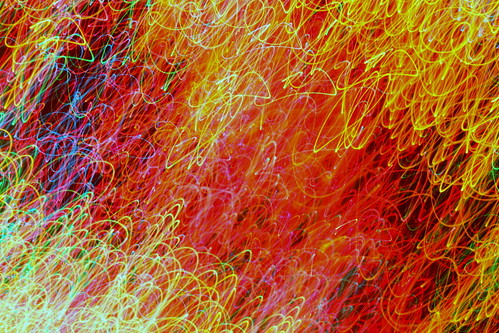Stop, or I will say Ni to you, a second time!
Seriously, though, it seems to me like there's a continuum in how much people "chunk" based on experience over time and experience across contexts. I'd rank them:
- Se: Low across-time, low across-contexts
- Ne: Low across-time, high across-contexts
- Si: High across-time, low across-contexts
- Ni: High across-time, high across-contexts
In a way, I'd say that J types tend to perceive things based on consistency and repetition across time. So, something that is comprehensible for a J type looks like light writing:
Whereas SJs focus on things that repeat over time in the same context (that that's what tends to become "right" and other things "wrong"), NJs focus on things that repeat over time and possibly across contexts.
That means that if someone starts repeating a pattern an NJ will quickly perceive it. So that's a big win as far as perceiving things and being able to plan accordingly. They also tend to find deviation from the expected pattern distracting. It's as though they have a kind of persistence of vision, that enables them to be tuned into both the historical patterns, and the current momentum.
Something a bit more chaotic over time, though:
Is going to be distracting and chaotic (although the example above is pretty even, really). But for someone who tracks the light pen as it happens, relatively random is not significantly more distracting than non-random. An SP might always be tracking the point where it is (and how it might be tuned). An NP might be tracking where the light pen might go from here (partially based on possibilities based on other contexts). In either case, perceivers are less like to be perturbed by reduced predictability, but may be blind to repetition and momentum in some cases.




